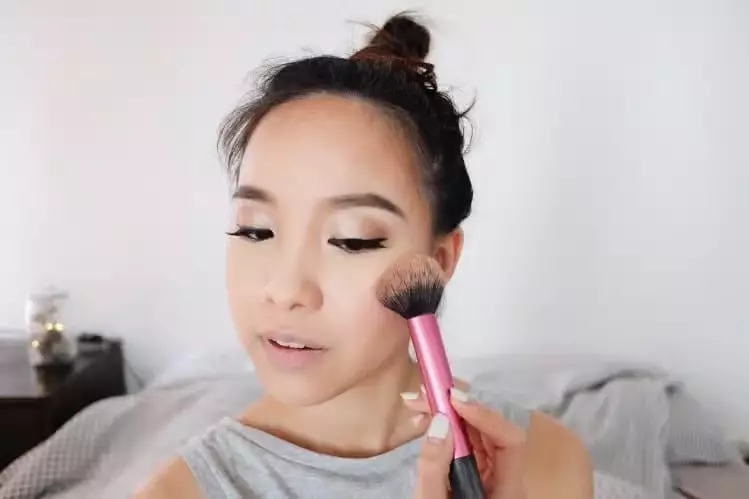In an era where health consciousness is at an all-time high, it is crucial for women who are trying to conceive or are already pregnant to be aware of the myriad of chemicals lurking in everyday products. The potential effects of these substances can be significant, influencing both fertility and the healthy development of the fetus. The need for awareness and proactive measures is underscored, creating a powerful opportunity for empowered choices that protect both mothers and their unborn children.
One of the most insidious groups of chemicals to watch out for are parabens. Found prominently in various cosmetics and skincare products, parabens serve as preservatives but have been shown to mimic estrogen in the body. This can interfere with hormonal balance and potentially hinder healthy egg production. Health experts suggest that women aiming for conception or who are pregnant should be vigilant about reading labels and choose paraben-free alternatives. Brands such as Honest Beauty have emerged, offering safer options that pose less risk while still delivering desirable results.
Caffeine: A Double-Edged Sword
Caffeine is yet another substance that warrants scrutiny during pregnancy. While research has offered conflicting findings regarding caffeine’s impact on reproductive health, moderation is generally advised. Experts recommend limiting intake to under 200 mg per day, which is roughly equivalent to a single cup of coffee. Gradually reducing caffeine consumption in the months leading up to conception can not only help ease pregnancy transitions but may also give the body the best chance to adjust positively to the changes that come with pregnancy.
The BPA Minefield: Safeguarding Your Environment
Bisphenol A (BPA) is a chemical commonly found in plastics and has been linked to a range of health issues, including reproductive abnormalities. Pregnant women should take proactive measures to reduce their exposure to BPA, beginning by ditching plastic food containers and opting for glass or stainless steel alternatives. Additionally, pregnant women should avoid using canned foods, where BPA is often present, and prepare fresh foods whenever possible. Transforming your food storage habits can significantly mitigate risks not just for you but also for your developing baby.
The Beauty Dilemma: Rethinking Skincare
As women, the pursuit of beauty often walks hand-in-hand with the use of skincare products that may contain harmful ingredients. For expectant mothers, the use of retinoids and retinols, frequently lauded for their anti-aging properties, poses risks that far outweigh their potential benefits. These compounds are related to vitamin A, which, when absorbed, can be detrimental to fetal development. Therefore, avoiding retinoids and turning to safer alternatives like glycolic acid or vitamin C can accentuate beauty without the health risks.
Furthermore, the choice of hair dye should not be taken lightly. While vegetable-based dyes are generally safe for use during pregnancy, one should remain cautious. It is advisable to prioritize methods that minimize contact with the scalp to further limit exposure to potentially harmful chemicals.
Addressing Smoking and Fragrance Concerns
The dangers of smoking are well-documented, yet many underestimate its impact on fertility and pregnancy outcomes. The chemicals found in cigarettes can accelerate egg loss and pose risks of low birth weight in children. If you or someone you know is struggling to quit smoking, organizations like SmokeFree.gov provide valuable resources tailored to support expectant mothers.
Another area that often goes overlooked when discussing harmful substances is fragrances. Many household products, including air fresheners and detergents, are laden with synthetic fragrances that can interfere with hormonal balance. It’s prudent to avoid these products entirely and consider natural alternatives instead, harnessing the power of essential oils where possible while remaining vigilant about their safety during pregnancy.
Healthy Alternatives: Making Informed Choices
With the vast landscape of options available today, being a discerning consumer is vital. When it comes to nail care, for instance, choosing polishes free of harmful compounds is a move in the right direction. Brands committed to clean beauty can offer polishes that are safer without sacrificing aesthetic appeal, allowing you to embrace self-care fully.
The importance of a comprehensive and mindful prenatal vitamin regimen cannot be underestimated. Each facet of health, including diet and supplementation, should be approached with diligence. Consulting with a healthcare provider can yield personalized recommendations that ensure the delivery of essential nutrients while minimizing exposure to harmful substances.
By fostering an environment of health awareness and making informed choices, women can navigate the complexities of pregnancy and preconception with confidence. This empowerment through knowledge becomes a beacon of hope, illuminating the path toward safer pregnancies and healthier starts for new life.

